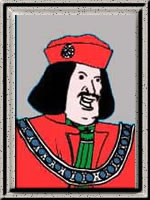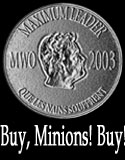Greetings, loyal minions. Your Maximum Leader is a student of history. Indeed, he studied it quite extensively in college and at graduate school. But as many readers of this blog will know, your Maximum Leader is not a particular fan of the American Civil War. Indeed, in his mind the Civil War itself is not very interesting. He means this in a strategic sense. The end of the American Civil War was a foregone conclusion from the beginning.
Now your Maximum Leader has heard all the protestations against his view before. You can make all the “what if” arguments you like. All these “what ifs” will present a case that “if Lee had done this” or “if Longstreet had done that” or if “the South could have gotten Britain or France in the war on their side” then the outcome of the war would be different. For many years, your Maximum Leader bought into these “what ifs.” He’d say from the age of about 13 to 20 he would have agreed in a bunch of hypotheticals concerning the Civil War.
But, one day sitting in a favorite history professor’s dining room partaking of tomato sandwiches he had an eye opening conversation. (Indeed there were two eye openers that night. The first one was that garden-grown tomatos, generously sliced, served in the middle of a hot biscut with mayo and salt were pretty damned tasty. But that is another story…) His professor, a wise and somewhat eccentric man who had once run for Congress as a “Troublemaker” - who by the way was thought to be a great advocate of “the South,” asked if your Maximum Leader had done his diplomatic history course reading for the week. Surprisingly your Maximum Leader had done the reading. It was some synopsis of the diplomacy engaged in by the Union to keep Britain and France out of the Civil War.
His professor asked a question to the effect of “well, would a Confederate victory at Antietam or some such place have brought in either European power?” Your Maximum Leader, without much reflection, said that it was possible if this or that happened. At this your Maximum Leader’s professor smiled widely. It was the smile that said, “You foolish young boy.”
He then proceeded to exposit on the many reasons why neither Britain nor France would have ever gotten themselves involved in the Civil War. He then discoursed on why the Confederacy could never have won the Civil War. By the end of the talk your Maximum Leader had a lot to think about.
Over the next few years, various courses required that your Maximum Leader learn more about the Civil War than he wanted to. He eventually came to the conclusion that if there was anything interesting to study in the Civil War it all tactical. This is to say that the battles were interesting to learn about from a tactical perspective. It is also true that the ineptitude of Union Generals in the early years of the war is pretty interesting.
Now, moving on, your Maximum Leader was born in Virginia. He would say that insofar as one is “proud” of one’s home state, he is a proud Virginian. He loves his state and thinks there is a lot to commend it above other states. If you happen to be a proud Virginian, you have a battery of very fine fellows you can bandy about in historical discussions. Virginia’s favorite sons as they are. The list generally goes like this: Washington, Jefferson, Madison, (sometimes Monroe, Henry, and Mason), and Lee. The list almost always ends with Lee.
Now… Your Maximum Leader has been greatly conflicted about Robert Edward Lee for most of his adult life. As a boy, when you think simplistically about history, Robert Edward Lee is a great and admirable figure. While Lee exists in a lofty pantheon, there is an element of humanity to him. He seems more approachable than does Washington. Washington is like a deity - who’s stern glower watches our every action off the dollar bill. But you see a photo of Lee and you feel drawn to him. He seems like a kindly grandfather. He seems a little sad, but you feel empathy towards him.
Then there is the common depiction of Lee. The graceful gentleman. The courteous cavalier. The noble warrior. Hardly anyone has a bad thing to say about Robert Edward Lee.
Frankly, there is one really bad thing you can say about Robert Edward Lee in your Maximum Leader’s opinion. He fought for the wrong side. That fact has caused your Maximum Leader’s conscience concern when he gets a little too warm-hearted towards Robert E Lee. Your Maximum Leader would have a warm-fuzzy feeling about Robert E. Lee, then that feeling would immediately be followed by the cold-prickly assessment of reason. In the end, your Maximum Leader finds that he doesn’t have feelings towards Lee at all now. No positive or negative feelings. He is just a historical figure of some importance to our National story.
So your Maximum Leader doesn’t admire Robert E. Lee. He has never admired other Confederate Generals. Frankly, while he recognizes the military genius of Grant and Sherman; they are flawed characters your Maximum Leader doesn’t find particularly admirable either.
So, imagine your Maximum Leader’s surprise when he received his new copy of Smithsonian Magazine. In it there was a very go�d article on George Henry Thomas. Don’t get Smithsonian? Well here is a link: Catching up with Old Slow Trot in Smithsonian Magazine.
Your Maximum Leader remembers seeing Thomas’ name in various books he’s read. But he doesn’t remember much else. Well, he remembers the “Rock of Chickamauga” appelation; but not much else.
After reading the article, your Maximum Leader thought to himself, “Self, here might be a Civil War general worthy of some adirmation.” Although the article states that no serious biography has been written about Thomas, and thus he has gotten short shrift from history. That is really too bad. Your Maximum Leader hopes that some enterprising historian will put together a biography of this interesting (and perhaps admirable) figure.
Carry on.




